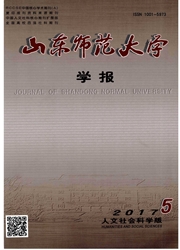

 中文摘要:
中文摘要:
清末民初关于“白话”的称谓经历了由“俗语”、“白话”到“京话”、“官话”,再到“国语”的变化过程,反映了近代报章白话的语言观念及其流变轨迹,背后潜隐的是白话文运动、拼音化运动与国语运动和文学革命倡导者努力打破千百年来形成的文白、雅俗界限的良苦用心,以及大力提升白话的社会文化地位和文学功能的显著用意。清末民初白话语言观念的形成及其流变,影响乃至决定着近代白话书写的基本面貌,中国白话书写语言的现代转型自此拉开序幕。
 英文摘要:
英文摘要:
During the late Qing Dynasty and 'early Republic of China, the appellation of "Vernacular" changed from "Vulgarism" to "Beijing dialect", and then to "Mandarin", and finally to the "National Language", demonstrating the linguistic concept of the Vernacular employed in modern newspapers and the traces of its changes. What is behind this is the well-meant intentions of the advocates of China' s Vernacular movement, Pinyin movement, the National Language movement, and literary revolution to break down the barrier between the classical and the Vernacular, and between the refined and the vulgar in the use of the Chinese language formed over the past thousands of years ; and the self - evident intentions to enhance the social, cultural status and literary function of the Vernacular. Its come-into-being and changes during the late Qing Dynasty and ear- ly Republic of China affected and determined the basic appearance of modern Vernacular writing. Hence the beginning of the modernization of China' s modern Vernacular writing ever since then.
 同期刊论文项目
同期刊论文项目
 同项目期刊论文
同项目期刊论文
 期刊信息
期刊信息
